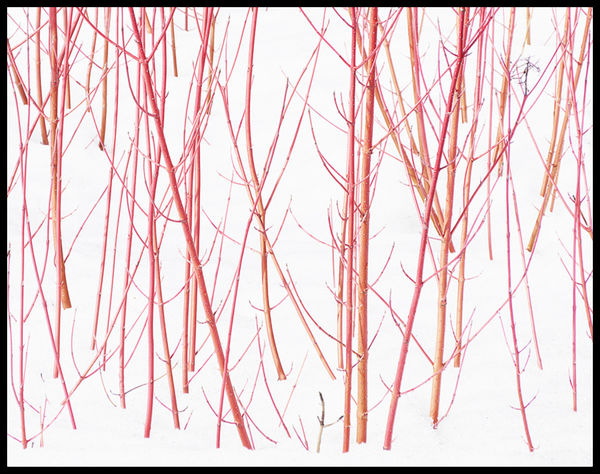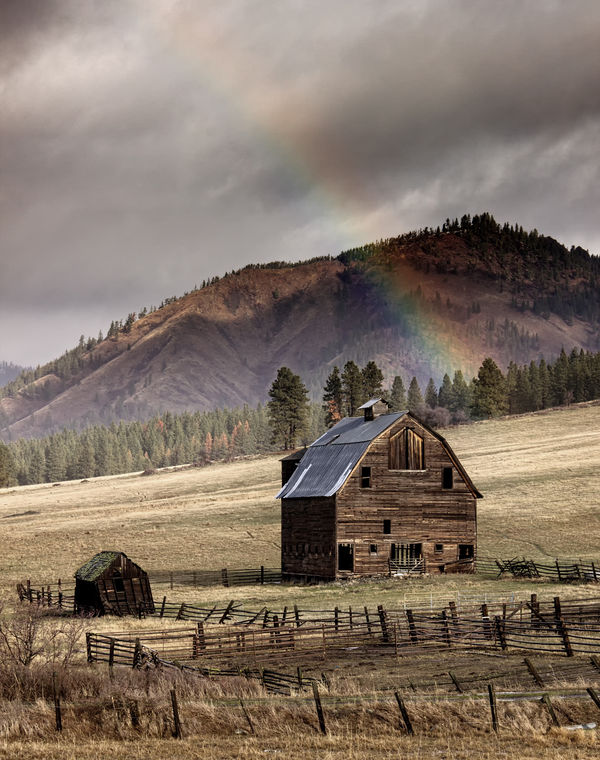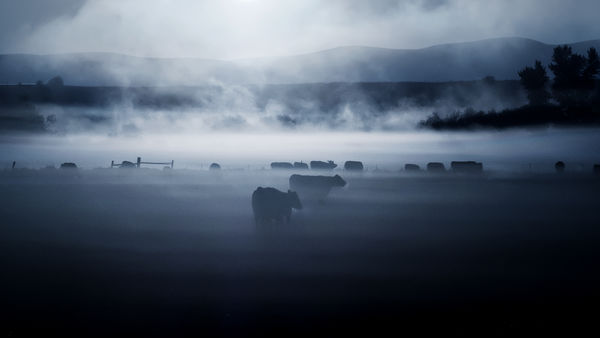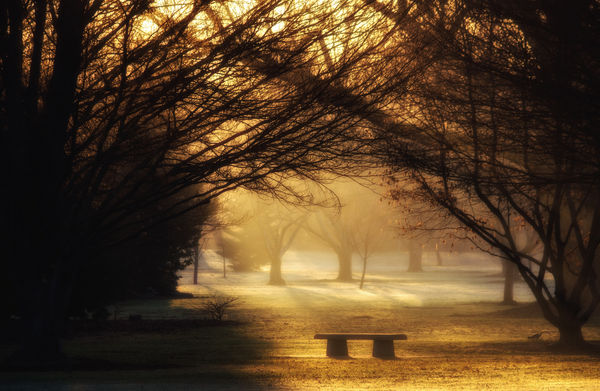Can mental quickness in responding to a changing photographic scenario be learned/improved?
Sep 13, 2018 12:30:01 #
Not sure if I can express this question clearly enough to avoid off-the-rail and tangential responses, but here goes…
I’m trying to better understand and improve my reactions in response to shooting situations where things change (or could potentially change) rapidly - the subject moves, backgrounds or other visual elements change, lighting changes, etc. In those scenarios the photographer may have to make quick decisions - reposition himself, move the camera, change settings, etc. This need for quick mental assessments also applies to situations where the photographer is rushed to take a shot, as in a spontaneous event or fleeting moment (e.g., Eisenstaedt’s photo of the couple kissing in Times Square). In the Wikipedia article on Cartier-Bresson there is a reference to “…gut reactions to fleeting situations that he had happened upon.”
I’m not talking here about quickness in manipulating camera adjustments; that’s a matter of knowing your camera and practice. I’m talking about mental quickness in taking in a dynamic scene where the positions, qualities, relative strengths, etc, of its visual elements change.
So, the question is: Can quickness in photographically appraising a situation, and making the appropriate reaction decisions, be learned and improved? Or are some of us more “deliberate” thinkers, more suited for something like table-top photography, where we can play around with the lighting and position of the visual elements? Do some of us have innate physiological and/or psychological traits that are essentially fixed and limit our ability to engage in photography in dynamic scenarios such as photojournalism, sports and street?
Wise words of wisdom are always appreciated!

I’m trying to better understand and improve my reactions in response to shooting situations where things change (or could potentially change) rapidly - the subject moves, backgrounds or other visual elements change, lighting changes, etc. In those scenarios the photographer may have to make quick decisions - reposition himself, move the camera, change settings, etc. This need for quick mental assessments also applies to situations where the photographer is rushed to take a shot, as in a spontaneous event or fleeting moment (e.g., Eisenstaedt’s photo of the couple kissing in Times Square). In the Wikipedia article on Cartier-Bresson there is a reference to “…gut reactions to fleeting situations that he had happened upon.”
I’m not talking here about quickness in manipulating camera adjustments; that’s a matter of knowing your camera and practice. I’m talking about mental quickness in taking in a dynamic scene where the positions, qualities, relative strengths, etc, of its visual elements change.
So, the question is: Can quickness in photographically appraising a situation, and making the appropriate reaction decisions, be learned and improved? Or are some of us more “deliberate” thinkers, more suited for something like table-top photography, where we can play around with the lighting and position of the visual elements? Do some of us have innate physiological and/or psychological traits that are essentially fixed and limit our ability to engage in photography in dynamic scenarios such as photojournalism, sports and street?
Wise words of wisdom are always appreciated!

Sep 13, 2018 12:32:46 #
Yes. Through practice. Any activity that involves weighing a large number of variables to make a decision can be done quicker after lots of practice.
Sep 13, 2018 12:42:31 #
I agree with dsmeltz. Almost any skill set can be improved by practice. Even at my age, I do perform activities from time to time that challenge my reaction times, and spend time looking at familiar things or scenes and trying to find new angles or approaches.
Andy
Andy
Sep 13, 2018 12:51:00 #
Vote #3 for same - yes, practice. Find or invent situations that will challenge your skill development. If you want to practice panning, you don't have to wait for an airshow or horse race. Go out and track cars going down the street or dogs running across the yard. If you want a initiative sense of depth of field, practice aperture priority with your preferred lens and shoot either all at the same aperture for the day. Or, pick one subject and run from the widest aperture the lens supports through f/13 - f/16. Analyze the images on your computer and determine the aperture value or range that is your artistic preference. Then, go out and practice with that value. If you don't move your AF points around, get the manual and learn the dials. Then practice shooting and moving those points around the frame to get the finger-feel for the process seeking to make it so natural you don't have to lower the camera from your eye.
Sep 13, 2018 13:00:09 #
Sep 13, 2018 13:31:15 #
DaveO wrote:
The Army says to train as you would fight. Practice.
I think that was the Marine Corps

Sep 13, 2018 13:34:03 #
DaveO wrote:
The Army says to train as you would fight. Practice.
picwizard77 wrote:
I think that was the Marine Corps 

Now, now. Remain calm.
This could be worse than Canon vs. Nikon.
Sep 13, 2018 13:35:12 #
picwizard77 wrote:
I think that was the Marine Corps 

I was in both and all I remember about the Corps was OORAH!
No question that I could be confused!

Sep 13, 2018 14:00:15 #
I like this topic!
The first thing I would suggest is to not worry about failure! Don't beat yourself up if you missed "the perfect shot" for whatever reason.
For street photography, spend a lot of time observing and photographing people's interactions.
For wildlife or birds, learn about their habits: when are they most active, where they are likely to be - and at what time of day. You can often find the favorite perches by the white poo left behind Be as ready as possible with settings at high shutter speed and auto ISO.
Be as ready as possible with settings at high shutter speed and auto ISO.
Probably the most fleeting moments I shoot involve light and weather. But I attempt to put myself in a position to be successful. I have learned - by being out there a lot - about the quality of light in different seasons and times of day, as well as knowing what conditions might produce mist or patchy fog.
#1 - chasing small rain showers all over the county one morning.
#2 - The third season I visited this pasture at dawn for possible ground fog in September/October.
#3 - Wrong aperture, no time to change, who cares? It has a mood and color (with pp help) that I liked enough to print and hang.
The first thing I would suggest is to not worry about failure! Don't beat yourself up if you missed "the perfect shot" for whatever reason.
For street photography, spend a lot of time observing and photographing people's interactions.
For wildlife or birds, learn about their habits: when are they most active, where they are likely to be - and at what time of day. You can often find the favorite perches by the white poo left behind
 Be as ready as possible with settings at high shutter speed and auto ISO.
Be as ready as possible with settings at high shutter speed and auto ISO.Probably the most fleeting moments I shoot involve light and weather. But I attempt to put myself in a position to be successful. I have learned - by being out there a lot - about the quality of light in different seasons and times of day, as well as knowing what conditions might produce mist or patchy fog.
#1 - chasing small rain showers all over the county one morning.
#2 - The third season I visited this pasture at dawn for possible ground fog in September/October.
#3 - Wrong aperture, no time to change, who cares? It has a mood and color (with pp help) that I liked enough to print and hang.
Sep 13, 2018 14:06:36 #
Linda From Maine wrote:
I like this topic! br br srt, you said you are n... (show quote)
Linda, I really like all three of these very much. The shallow depth of field in the third one adds to the image rather than subtracts.
The second shot is my favorite, however. Perfect lighting and angle, and your exposure is spot on. I drive 65 miles to work each day, and there's a specific spot where I've looked for that angle of light and depth of fog. I've never yet caught it perfectly, but I always slow down as I'm passing it, trying to see the stream and wetland from each day's individual perspective. Inevitably, when it looks inviting and I think about stopping and experimenting, it's a day where I am either running late or have a very fixed schedule. Moral of the story: Even slowing down, looking, and thinking about a shot can be productive.
Andy
Sep 13, 2018 14:12:11 #
AndyH wrote:
Thanks Andy! I was shooting towards the sun and light was yellow, so there's a lot of artistic license in that one.Linda, I really like all three of these very much.... (show quote)
Your suggestion about looking around and thinking about a shot - even if you don't have a camera with you - is excellent. I look at light all the time, meaning I observe shadows and colors and quality of harsh/soft light on buildings, trees, fields + how atmospheric conditions (especially haze) affects the distant views. I really should watch the road a little more closely, but fortunately, we don't have a lot of traffic around here

Sep 13, 2018 14:13:43 #
Strodav
Loc: Houston, Tx
Have a process, i.e., the steps you need to go through to get from A to B, then as others have said, practice, practice, practice. I'll add something that works for me - visualization. Just settle back, relax, close your eyes and go through the steps in your head visualizing how you will do them in full context. For most people, it can significantly reduce learning time.
Sep 13, 2018 14:42:01 #
Sep 13, 2018 14:56:48 #
srt101fan wrote:
Not sure if I can express this question clearly en... (show quote)
Yes!
Yes!
And Yes!
To your three questions.
Sep 13, 2018 15:19:01 #
As I was pondering the aspect of "deliberate thinkers," Gene confirmed they exist  One person on UHH comes to mind as being the total opposite of me regarding technique (including very careful exposure) and preparation: rmalarz. I have come to love not knowing what's around the next corner, reacting spontaneously.
One person on UHH comes to mind as being the total opposite of me regarding technique (including very careful exposure) and preparation: rmalarz. I have come to love not knowing what's around the next corner, reacting spontaneously.
So if you find that not having the time to carefully compose and think is more stressful than pleasurable, maybe that is indeed just who you are.
But I want to mention again the importance of observation (at all times, not just on photo outings), and also of thinking less literally. Consider not only the light and shadows, but shapes, textures and out-of-ordinary: things that wouldn't normally go together and contrasts: of color, certainly, but also concepts like old/new.
These ideas may not sound relevant to "reacting quickly" but I think they are all part of the package, a way to get out of the analytical left brain and more into the creative right brain.
This is going to be a boring pic for most viewers, but it represents what I mean about being observant to "different." I actually turned the car around and went back for this shot

-
 One person on UHH comes to mind as being the total opposite of me regarding technique (including very careful exposure) and preparation: rmalarz. I have come to love not knowing what's around the next corner, reacting spontaneously.
One person on UHH comes to mind as being the total opposite of me regarding technique (including very careful exposure) and preparation: rmalarz. I have come to love not knowing what's around the next corner, reacting spontaneously. So if you find that not having the time to carefully compose and think is more stressful than pleasurable, maybe that is indeed just who you are.
But I want to mention again the importance of observation (at all times, not just on photo outings), and also of thinking less literally. Consider not only the light and shadows, but shapes, textures and out-of-ordinary: things that wouldn't normally go together and contrasts: of color, certainly, but also concepts like old/new.
These ideas may not sound relevant to "reacting quickly" but I think they are all part of the package, a way to get out of the analytical left brain and more into the creative right brain.
This is going to be a boring pic for most viewers, but it represents what I mean about being observant to "different." I actually turned the car around and went back for this shot


-
Red Sticks in the Snow

If you want to reply, then register here. Registration is free and your account is created instantly, so you can post right away.









